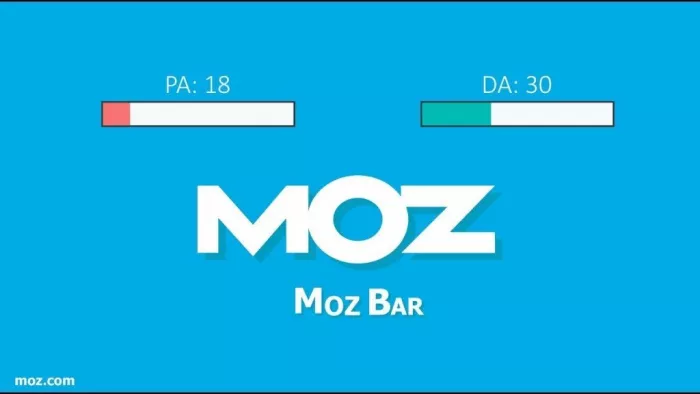
SEO has evolved into more than just keywords and backlinks. It’s now a dynamic blend of content creation, technical optimization, user experience, and data interpretation. For marketers looking to grow organic visibility without blowing the budget, there’s no shortage of free tools that offer real value.
Here’s a free SEO tools guide that continues to stand out in 2026. Each one addresses a specific part of the SEO process, helping you stay focused, efficient, and competitive.
1. Google Search Console
Google Search Console remains a must-have. It gives access to keyword performance data, showing which terms your site is ranking for and how many impressions or clicks they generate. You can also monitor crawl status, indexing problems, and site health issues.
What makes this tool essential is that it comes directly from Google. It acts as a communication bridge between your site and the search engine. If pages are not indexed or your site faces a manual penalty, this is where you'll find out first.
You can also submit sitemaps here and inspect URLs to check if they are indexed correctly. For diagnosing dips in traffic or issues with mobile usability, this is one of the most reliable places to start.
2. Google Analytics 4

If you want to know how visitors behave on your website, GA4 is your go-to platform. Unlike its predecessor, GA4 uses an event-based tracking model, which gives more detailed insights into user interactions.
It allows you to monitor key metrics like bounce rate, session duration, conversion paths, and engagement rates. You can segment your audience, analyze how they move through the site, and measure what content leads to conversions.
Used alongside Google Search Console, it creates a strong data foundation for making content, UX, and SEO decisions. Knowing what your audience responds to helps you create more of what works and improve what doesn’t.
3. Ubersuggest
Ubersuggest is a freemium tool created by Neil Patel. While the paid version unlocks more features, the free plan still gives access to keyword ideas, search volume, SEO difficulty, content suggestions, and limited backlink data.
You can also analyze domains to get a quick overview of organic traffic, top-performing pages, and keyword distribution. It’s user-friendly and suitable for quick research or small-scale campaigns.
Beginners especially benefit from Ubersuggest because of its clean dashboard and plain-language explanations of SEO metrics.
4. AnswerThePublic
Keyword research is only one part of SEO. Understanding how people search is equally important. That’s where AnswerThePublic comes in.
It visualizes search queries people enter around a particular topic, grouping them by question types like “what,” “how,” or “why,” as well as prepositions and comparisons.
This is especially helpful for content creators and strategists who want to create blog posts, FAQ pages, or video content that directly answers common user questions.
It brings user intent into clearer focus and can even help identify long-tail keywords or voice-search opportunities you might otherwise overlook.
5. Screaming Frog SEO Spider (Free Version)
Screaming Frog is a downloadable tool that crawls websites much like a search engine would. The free version allows up to 500 URLs per audit, which is plenty for many small to mid-sized sites.
Once a crawl is complete, you get an overview of your site’s technical SEO structure: broken links, duplicate content, missing title tags, improper redirects, and more.
For larger websites, Screaming Frog is useful for spotting systemic problems, such as repeated metadata errors or thin content spread across hundreds of pages.
The tool is widely trusted among professionals and is often used as part of regular site health audits.
6. MozBar

MozBar is a browser extension that provides SEO insights as you browse any webpage. It displays domain authority, page authority, keyword density, and link metrics, and it even lets you preview how your page might look in the search results.
It is extremely handy when doing competitive research. By scanning the top search results for a particular keyword, you can quickly compare page authority and determine if you have a shot at ranking.
MozBar also highlights links on a page as follow or nofollow, giving SEOs a faster way to evaluate link-building opportunities.
7. Bing Webmaster Tools
Although many focus exclusively on Google, Bing remains a secondary traffic source with real potential. Bing Webmaster Tools offers many of the same features as Search Console, such as indexing reports, keyword data, backlink analysis, and crawl diagnostics.
It’s worth noting that some features in Bing Webmaster Tools are more intuitive than in Search Console. For example, its keyword reporting tool shows slightly different data, which can offer new perspectives.
If your target audience includes older users, desktop users, or those in certain geographic regions, optimizing for Bing could yield additional organic growth.
8. Google PageSpeed Insights
Page speed is a direct ranking factor and a key component of user experience. Google PageSpeed Insights evaluates your site’s performance on both desktop and mobile devices.
It doesn’t just assign a performance score—it provides actionable suggestions to improve loading speed, such as image compression, removing unused CSS, and leveraging browser caching.
The tool reports on Core Web Vitals as well. These include metrics like Largest Contentful Paint (LCP), First Input Delay (FID), and Cumulative Layout Shift (CLS), which influence both SEO and user retention.
9. GTmetrix
If you want even more depth around performance data, GTmetrix is a solid companion to PageSpeed Insights. It shows a waterfall view of every asset your page loads, helping you pinpoint bottlenecks.
GTmetrix also allows you to test from different geographic locations and view performance history over time. This is valuable for sites with international audiences or for tracking improvements after site updates.
While PageSpeed focuses on Google’s criteria, GTmetrix gives developers and marketers more flexibility in how they interpret the data.
10. SEO Minion
SEO Minion is a browser extension that provides on-page analysis in seconds. It checks meta tags, heading structure, canonical tags, and broken links directly on the page you’re viewing.
It also includes a handy SERP preview tool that shows what your listing will look like in Google. This is helpful when crafting titles and meta descriptions that stand out and follow best practices.
You can even simulate multi-location search queries to see how a page performs across regions, something especially useful for local SEO strategies.
Final Thoughts
Marketing often pushes budgets in many directions. Relying on powerful free tools gives you clarity and control. You can execute strategy, test ideas, learn from analytics, and refine content without spending a rupee.
Staying consistent in how you use these tools helps build SEO skills over time. You learn where to look, what matters, and how to track progress. As your site grows in visibility, search traffic, and conversions, you'll see the power of combining precision with smart tool selection.
Here’s to making SEO approachable, affordable, and effective in 2026.





Comments